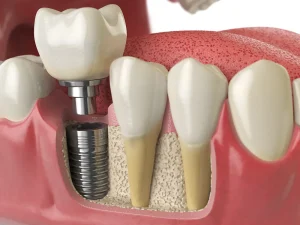The Benefits of Massage Therapy for Health
3 min read
Naked young man and woman lying on bed and getting back massage at spa
Massage has many advantages, from stress reduction to improved sleep. It may even benefit those with medical conditions or other health concerns.
The National Center for Complementary and Integrative Health (NCCIH) suggests that massage therapy may reduce pain, improve circulation, and boost immune system function; however, it should never replace doctor-recommended care.
Improved Circulation
Massage helps circulate blood more freely around your body, flushing away lactic acid from muscles and providing you with a feeling of well-being.
Massage therapy can be especially beneficial for those with poor circulation, who often experience muscle soreness that hinders them from getting the most out of exercise. Furthermore, those suffering from chronic pain may find relief from their symptoms through massage therapy.
Research has confirmed that massage pressure can effectively increase blood flow and oxygenation to both your brain and lungs.
Blood circulation is primarily controlled by the nervous system and heart tissue health, but there are also mechanical factors in venous and lymphatic blood flow which can be affected by massage. Since both systems rely on muscle contractions for pumping action, massage has the potential to influence these circulations as well.
Reduced Stress
Stress is a leading factor in many health issues, so it’s no surprise that massage therapy can help reduce its impact. A good massage decreases cortisol production while increasing serotonin release from neurons.
Massage not only increases circulation and flushes out metabolic waste products from your body that accumulate when under stress, but it also provides oxygen to cells and brain, relieving mental fatigue and physical strain as well.
Furthermore, regular massages increase the number of white blood cells essential for strengthening your immunity. This can help ward off infections and illness that may arise in the future, providing further reassurance.
Better Sleep
Massage is an all-inclusive term for pressing, rubbing and manipulating your skin, muscles, tendons and ligaments. It may consist of light stroking or deep pressure. Massage has become increasingly used alongside standard medical treatment to address various medical conditions and situations.
Research suggests that massage may aid in improving sleep. Not only does it help you relax and fall asleep quickly, but it can also reduce stress levels and allow your circadian rhythms to resume naturally.
Another advantage is that serotonin levels can be elevated, stimulating your body’s production of melatonin – the hormone responsible for sleep and wake cycles – thus aiding in improved slumber as well as fighting depression naturally.
Massage therapy can be an effective aid to sleep, such as the Swedish style which targets surface layers of muscles. You may also opt for a sports method similar to the Swedish approach but focused on specific areas of the body.
Increased Flexibility
Massage therapy promotes flexibility by targeting soft tissue pains, injuries and issues that restrict mobility. It may be used as a remedy for muscle injuries like carpal tunnel syndrome as well as chronic stiffness caused by conditions like arthritis.
Massage has many benefits beyond relieving muscle tension. A randomized controlled trial revealed that weekly massage treatments increased white blood cell count and reduced cortisol levels, suggesting a potential benefit beyond just treating muscle issues.
Massage therapy has also been known to be beneficial for those suffering from chronic pain conditions like arthritis or MS. Furthermore, it may aid in managing mental health issues like depression.
Flexibility is essential for overall health and well-being, as it helps reduce the risk of injury. Expanding your range of motion (ROM) is especially beneficial for athletes and those engaged in strenuous activities like tennis, running or gymnastics.





